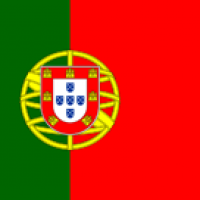Gouveia, J.P. and Palma, P. (2021) Best practices in Portugal. EP-pedia, Engager COST Action.
Perspective on Best Practices in the Policy Debate in Portugal
In Portugal, the current best practices for combatting energy poverty from the policy side pertain to the implementation of identified measures to support vulnerable households, such as the automatic attribution of social electricity and natural gas tariffs, reduction of VAT taxes on energy prices and delay of energy disconnections. In the near future, in the context of Portugal's pandemic-related Recovery and Resilience Plan, the government is allocating part of the 400 million euro of the national budget aimed at improving the energy efficiency of the building stock specifically for energy poverty vouchers, to be distributed to vulnerable families.
Perspective on Best Practices in Civil Society in Portugal
The social non-governmental organization Just a Change Association (JAC) (Just a Change, 2020) mobilizes volunteers to work on the rehabilitation of houses in precarious conservation states, among those belonging to vulnerable consumers across Portugal. It leads projects for solving housing poverty, with a track record of 262 renovated houses and social institutions of poor and vulnerable families and individuals, under a volunteer scheme running across Portugal. JAC has so far helped 4600 beneficiaries, families and social institutions users, and mobilized more than 5000 volunteers.
The national energy cooperative Coopérnico (Coopérnico, 2020) commercializes electricity at lower prices and invests, through its members, in decentralized photovoltaic projects that produce electricity for the owner and the surplus is sold to grid.
Furthermore, the Center for Environmental and Sustainability Research (CENSE) of NOVA University of Lisbon (FCT-NOVA), jointly with Coopérnico and Just a Change, co-branded the ENERGY ACTION Project on Energy Efficiency Tips in Portuguese that were disseminated on online social media. Tips include recommendations for the use of space heating and cooling, lighting, water heating, and appliances, and are particularly useful for the reduction of energy consumption and, indirectly, to mitigate energy poverty.
Several Portuguese entities working on energy topics (i.e. CENSE-FCT-NOVA, DECO, RNAE, Lisboa E-Nova, AdePorto, ADENE, ERSE, INESC TEC, DGC, DGEG and S. Energia) took part in supporting the Energy Efficiency Roadshow initiative from the European Commission held in Lisbon and Oporto (October 2018). This roadshow featured an interactive exhibition with tips on how to save on energy bills. More than 4000 visited the roadshow truck in Portugal, with over 11,000 people participating in other EU countries. In November 2020, in the scope of the H2020 European project STEP (Solutions to Tackle Energy Poverty), the Portuguese Association for Consumer Protection (DECO) created an office to provide personalized advise to consumers on energy management and efficiency, aiming to tackle energy poverty (Público, 2020).
Research perspective on Best Practices in Portugal
There are only a few projects in Portugal directly addressing energy poverty beyond the social support schemes and initiatives conducted by social NGOs. The Portuguese Energy Agency (ADENE) was the promoter of the project Ligar – Energy for All (ADENE, 2020), which ran from 2017 to 2019, with several national entities (e.g. FCT-NOVA, ICS, Sair da Casca) as partners. The project had the ultimate objective of making vulnerable consumers aware of the importance of energy efficiency, giving them information on best practices and measures that could be implemented to reduce their energy bills. The project encompassed the identification of 10 hotspot regions for action across the country, using the Energy Poverty Vulnerability Composite Index (Gouveia et al., 2018), followed by interviews with 100 (10 per region) of the most vulnerable households (Horta et al., 2018). Based on this work, local initiatives for capacity building and fostering energy efficiency actions were developed with local stakeholders.
ADENE. (2020). Projeto [Project]. Ligar – Energia para Todos [Ligar - Energy for All]. Available at: https://ligar.adene.pt
Coopernico. (2020). Quem Somos [Who We Are]. Available at: https://www.coopernico.org/pt/about#team
ENERGY ACTION (2018) Energy Efficiency Tips(in Portuguese) https://www.facebook.com/1435339146718081/posts/2107263526192303/
Gouveia J.P., Seixas, J., Palma, P., Simoes, S. (2018). Mapeamento da Pobreza Energética em Portugal. LIGAR – Eficiência energética para todos. Faculdade de Ciências e Tecnologia – Universidade Nova de Lisboa. ADENE – Agência para a Energia. Lisboa. Available at: https://ligar.adene.pt/wp-content/uploads/2018/07/Relat%C3%B3rio-ICS_LIGAR_vs-final.pdf (in Portuguese)
Horta, A., Sousa, J.C, Schmidt (2018). Caracterização dos consumidores vulneráveis: relatório final. LIGAR – Eficiência energética para todos. Instituto de Ciencias Sociais, Universidade de Lisboa. Available at: https://ligar.adene.pt/wp-content/uploads/2018/07/Relatório-ICS_LIGAR_vs-final.pdf (in Portuguese)
Jornal Económico (2018). https://jornaleconomico.sapo.pt/noticias/comissao-europeia-faz-roadshow-para-ajudar-os-portugueses-a-pouparem-na-energia-359410
Just a Change. (2020). Sobre Nós [About Us]. Available at: https://www.justachange.pt/
Público. (2020). Deco cria gabinete de aconselhamento gratuito sobre energia [Deco creates free advising office about energy]. Available at: https://www.publico.pt/2020/11/05/economia/noticia/deco-cria-gabinete-aconselhamento-gratuito-energia-1938064

